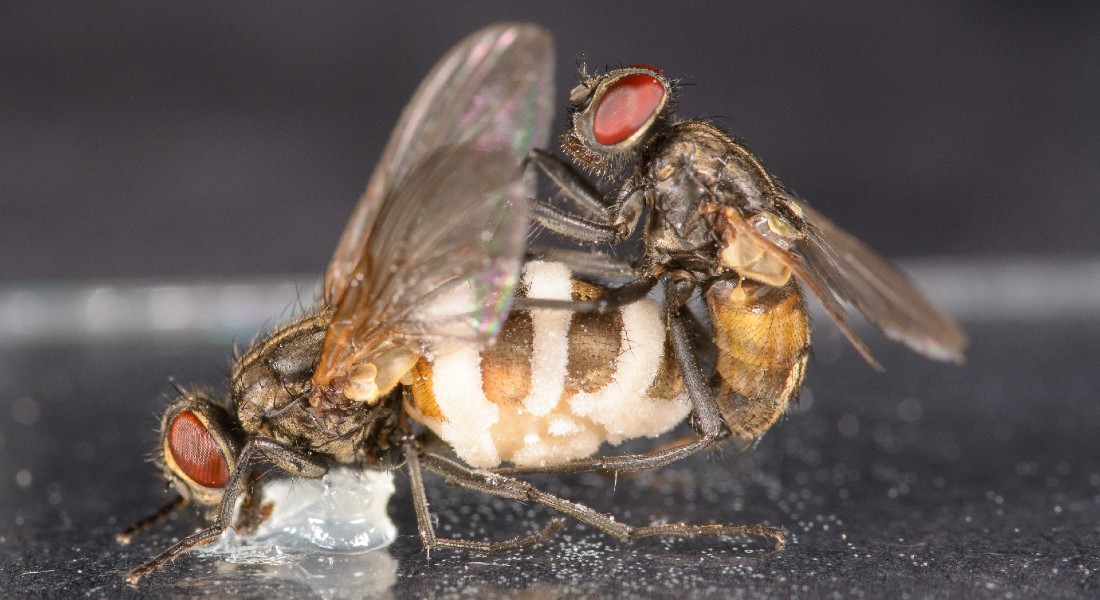Applied Evolutionary Ecology
Evolutionary ecology is a field within both ecology and evolution that examines how interactions between and within species evolve. Understanding the evolutionary effects of organism interactions is of fundamental significance in ecology, evolution, agriculture and human health.

We study how antagonistic (pathogenic) and beneficial (mutualistic) fungal symbionts are shaped by host ecology and evolution, how ecological and evolutionary factors determine the species-range partners interact with, and how new species interactions are established, for example through partner-shifts. We mainly use molecular and applied bioinformatics coupled with experimental work. Our work is fundamental in nature, but of applied significance for example for biological control and pathogen host shifts.
- Dynamics of insect-fungus interactions: We study how antagonistic (pathogenic) and beneficial (mutualistic) fungal symbionts are shaped by host ecology and evolution
- Species interactions: We explore how ecological and evolutionary factors determine the species-range partners interact with
- The evolution of fungal host colonizations: We study how new species interactions are established, for example by human induced environmental changes that promote partner-shifts
- Elucidating the evolutionary consequences of cryptic genetic variation and phenotypic plasticity for fungal host-shifts: Evolutionary genomic analyses of pathogenic fungal host-shifts
- Fatal attraction - how pathogens lure males to infectious female cadavers: Chemical ecology of pathogenic fungal transmission between insect hosts
Group members
| Navn | Titel | Telefon | |
|---|---|---|---|
| Henrik Hjarvard de Fine Licht | Lektor - forfremmelsesprogrammet | +4535320097 | |
| Laura Victoria Florez Patino | Postdoc | +4535336272 |
 Research group leader
Research group leader
Henrik H. de Fine Licht
Associate Professor
hhdefinelicht@plen.ku.dk
+45 35 32 00 97
